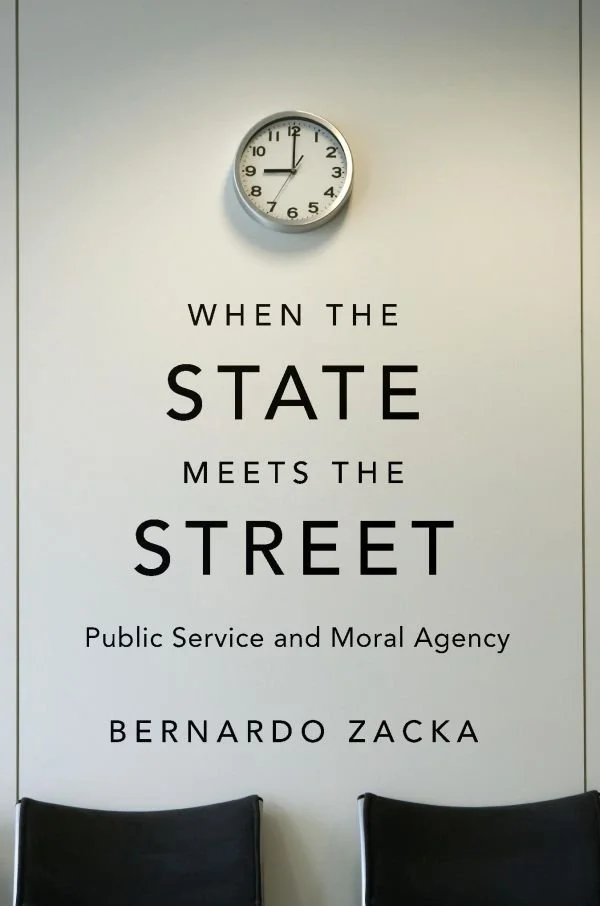The Charles Taylor Book Award
Best Book in Political Science Employing or Developing Interpretive Methodologies & Methods
Osman Balkan’s Dying Abroad: The Political Afterlives of Migration in Europe (Cambridge University Press, 2023) presents a fascinating ethnography of the oft-overlooked transnational implications of migrant deaths, and how those living outside of their birth countries—along with their families—navigate complicated, border-crossing end-of-life issues. Based on in-depth fieldwork in atypical sites (such as funeral homes) and with uncommon interlocutors (such as undertakers) in Berlin and Istanbul, Balkan provides a cogent analysis of the meanings associated with transnational deaths and movements of bodies among Germany’s large Turkish diaspora, as well as how these meanings relate to broader questions concerning identity and belonging. This timely work makes for especially compelling reading during our contemporary age of mass migration, and reveals in nuanced fashion how today’s debates concerning immigration also shape what Balkan refers to as the “afterlives” of immigrants, as well as the lived realities of their next of kin (both at home and abroad). The impressive fieldwork on which Dying Abroad is based also inflects the book’s writing, which is deeply reflexive and includes field notes and a discussion of the author’s positionality. It is the committee’s pleasure to present this year’s Charles Taylor Award to this powerful and politically important “ethnography of transnational deathways,” which makes clear contributions to the interpretivist tradition.

In Engage and Evade: How Latino Immigrant Families Manage Surveillance in Everyday Life (Princeton University Press, 2023), Asad L. Asad provides a phenomenological account of the lives of undocumented immigrants, delineating how they experience—and the meanings they ascribe to—various forms of surveillance. Drawing from in-depth interviews and ethnographic research, Asad provides a nuanced account of why the undocumented do not simply “evade” state institutions, but also, at different moments, find it advantageous to “engage” with them. The text itself is layered with ethnographic writing and insights—for example, from an immigration court—while the methodological appendix includes a thoughtful discussion of the author’s positionality vis-à-vis his interlocutors. As this well-researched and clearly argued ethnographic work usefully highlights how interpretive approaches can contribute to our understanding of complex and politically salient topics, the committee is pleased to recognize Engage and Evade with the Honorable Mention for this year's Charles Taylor book award.

The IMM Group gives the Charles Taylor Book Award annually to recognize the best book in political science that employs or develops interpretive methodologies and methods. Award winning books distinguish themselves as contributions to interpretivist thought in one or more of the following ways. First, they treat knowledge, including scientific knowledge, as historically situated and enmeshed in relationships of power. Second, they approach the world as socially made so that the categories, presuppositions, and classifications that refer to particular phenomena are understood to me manufactured rather than natural. Third, they eschew the individualist orientation that characterizes rational choice and behaviorist research, instead addressing how ideas, beliefs, values, and preferences are always embedded in a social world, which is constituted through humans' linguistic, affective, and practical relations with others.
Nominations are welcome from anyone. Authors may nominate their own work, as may readers and publishers. The nominated work may be either a single- or multi-authored book or an edited volume. To be eligible, books must have been published during the two-calendar-year period prior to the year of the APSA meeting, as determined by the printed book’s copyright date. A book that was nominated for the Charles Taylor Award during a year cannot be nominated again for the subsequent year’s Award. The award committee is under no obligation to make an award if submissions do not merit such recognition.
How to Nominate
Nominations for the 2025 Charles Taylor Book Award are currently open!
To be considered for the 2025 award, please do the following:
1. Mail one copy of the nominated book to each member of the award committee (listed below) so as to be received by March 30, 2025.
2. Email the committee chair Osman Balkan, obalkan@wharton.upenn.edu, notifying the committee of the nomination.
Members of the award committee for 2025 are:
Osman Balkan (chair), Huntsman Program in International Studies & Business, University of Pennsylvania
Mail to: 3732 Locust Walk, Philadelphia, PA 19104
Becky Ploof, Institute of Political Science, Leiden University
Mail to: Wanningstraat 14C, 1071LB Amsterdam, The Netherlands
Jessica Soedirgo, Department of Political Science, University of Amsterdam – Roeterseiland
Mail to: Postbus 15578, 1001 NB Amsterdam, The Netherlands





















